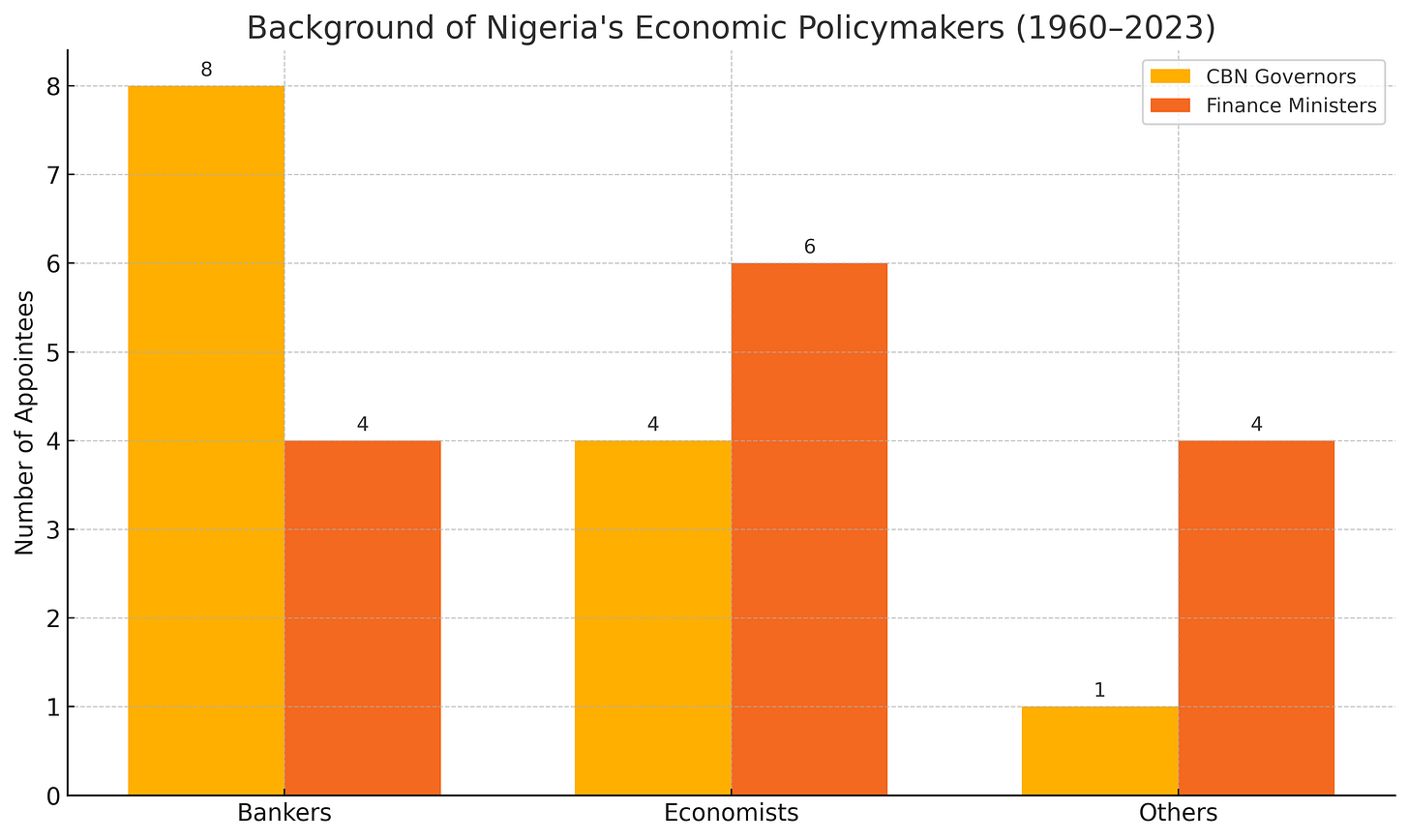Who Makes Policy
And why policies are made, matters.
Puzzled by finding three different deficit figures for the Nigerian federal Government, Feyi writes:
Three credible, public sources now spell out the fiscal picture:
Finance Ministry (Wale Edun): 2024 deficit – ₦6.6 trillion
World Bank: 2024 deficit – ₦10.5 trillion
Central Bank of Nigeria: 2024 deficit – ₦14.7 trillion
I uncovered these figures only because the CBN Governor rebuked us as non-readers. Deeply ashamed of myself as a non-reader, I went and read the documents and emerged more confused than before I had read anything. The CBN’s estimate is more than double the number the finance minister presented to investors in Washington, while the World Bank, ever the conciliator, sits squarely between the two.
Leave aside the shocking state of the government’s finances for a moment (that deserves a separate post of its own), the lesson here is to be careful what you wish for. When separate arms of government publish fiscal figures that cannot be reconciled, they torch what little confidence remains in their stewardship of the economy. The gaps here are far too wide to dismiss as quirks of capital-expenditure accounting or other technical accounting treatments. If those differences are genuine, the Finance Ministry, CBN and every other agency involved must produce a single, reconciled statement, before pushing any more numbers into the public domain.
For now I’m going to go back to reading novels.
I have always believed that Nigeria has never had developmental technocrats making policies in the last two decades. But putting that aside, what I have found very worrying about the current government is that the success of the economy is judged solely on positive news from the financial markets. There has been no serious effort by the Finance Minister to assume the responsibility of economic and fiscal policymaking. We seem to be happy with the evolved status quo of the last ten years, where the central bank became the front and centre of economic policy.
This might explain why the Honourable Minister is less concerned with the country having inconsistent national accounts. Despite holding the fancy title of "Coordinating Minister of the Economy", the finance minister seems content with acting more like an investment banker than a policymaker. This is why supporters of the government in the "learned punditry class" always talk about the economy like an asset management firm.
The point I am making is that economic policy, or even periods of economic reforms, have never prioritised development. There has never truly been a policy regime which showed a deep understanding that transforming the structure of the economy, and everything that comes with it, is the best way to raise incomes and reduce poverty. Perhaps this is due to the dominance of bankers in economic policy. I have no problem with bankers. Nigeria's financial sector has grown tremendously and attracts the country's best talents. Part of the job of political leadership is finding talented people who can design and execute economic policies.
However, if we want economic policy to deliver sustained growth and development, then the scope has to be more expansive than the niche financial worldview of currency stability, foreign portfolio flows, and aggregate GDP growth. It must be a coherent bundle of macroeconomic stability, productivity growth, human capital development, public goods investment, technological transfer and know-how and export industrialisation.
Expanding the scope must also involve hiring people who understand the theory, evidence, and practice of economic development, and not just the needs of the capital market.




When I read Feyi's post, I thought about how the way we run the country reflects how we write our laws - just as incoherent. Then this morning Agbakoba was on TV talking about how (not why) liberal democracy isn't working for "us". And I thought to myself that this is a lawyer who doesn't even understand the rule of law. They want democracy without the accompanying institutions. Democracy does not exist in a vacuum. You have to support it with the institutions that hold power accountable.
I can forgive the politicans, but if a "learned" Nigerian SAN doesn't understand that, then there's no hope.
But it seems executive power is all that matters in our version of democracy - power for its sake. Then we turn around and say Democracy isn't working. We should just gtf.